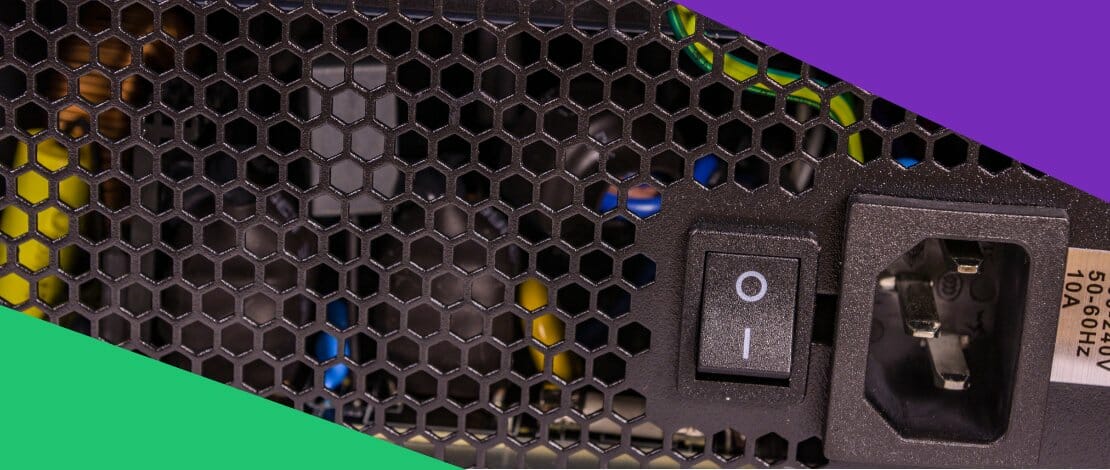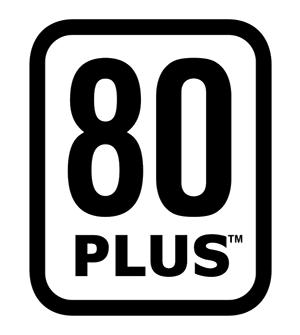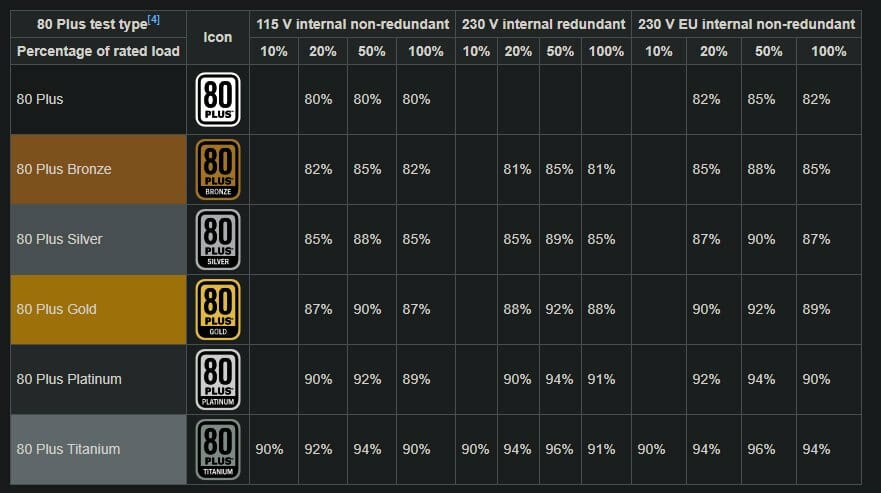Power Supply Efficiency Rating Explained

As we have said before, never underestimate the importance of your power supply unit in your PC. This is a crucial component that feeds power to your entire PC therefore you would want to make sure that you get a quality product for your build.
When buying a PSU you would usually look at things like wattage and modularity, but there is another metric that you should be paying attention to – efficiency rating.
What Is Efficiency Rating?
The efficiency rating of a power supply can be simply interpreted as a measurement of how good your power supply is at delivering the power from the socket to the PC components without wasting it on the way.
A simple example would be if you have a 600W power supply with an efficiency rating of 50%. This would mean that to output the full 600W of power to the PC components the power supply would have to draw 1200W of power from the socket (50% efficiency).
That is the simplest explanation of what an efficiency rating for power supplies means.
80 Plus Power Supply Rating
Looking at most power supplies produced by reputable brands you might have noticed that you don’t really see power supplies rated for less than 80% efficiency. This is because manufacturers have adopted an 80 Plus standard where their power supplies need to be at least 80% efficient at 20%, 50%, and 100% loads.

This is greatly welcomed since every time you buy a power supply with an 80 Plus logo on it you know for sure that at least 80% of the power drawn from the wall is actually going to your components, with only around 20% being dispersed as heat.
Additional 80 Plus Ratings
Besides the regular 80 Plus power supply rating you might have also noticed that usually there are additional categories such as Bronze, Silver, Gold, Platinum, and Titanium.
These distinctions were introduced because there was a necessity to distinguish between 80 Plus power supplies and their efficiency even further. The idea is pretty simple once again, the higher you go on the metal list, the higher the efficiency of the power supply.
This is good for consumers since the 80 Plus certification can be a bit vague about how efficient the power supply actually is (20% is quite a big margin).

As you can see in this graph an 80 Plus power supply unit that is also marketed as Gold is actually closer to a 90% efficiency, while a Titanium 80 Plus certified power supply is actually 95% efficient.
What Kind of Power Supply Should You Aim For?
You now understand what the power supply rating is and how the efficiency rating on the power supply affects your PC. How do you proceed from here?
Well, the most basic advice after looking at the current PSU market is that you should always aim to purchase a PSU that is at least 80 Plus Gold certified. Luckily this specific market area is extremely well populated, with most PSU manufacturers actually aiming for a slot in this category.
Therefore, if you are looking for a 500W, 600W, or even 850W PSU you will most likely end up with a Gold 80 Plus rating.
The differences in prices between Bronze-Silver-Gold rated PSUs are usually very small (5-10$) so you might as well invest in a power supply with a better efficiency. This better efficiency will most likely not necessarily mean you will save on your electricity bill but your PSU will last you longer.
The reason why it will last you longer is explained simply by the fact that it will waste less energy therefore less heat will be produced. Less heat = a longer lifespan for electronic products.
That is the basic math behind it!